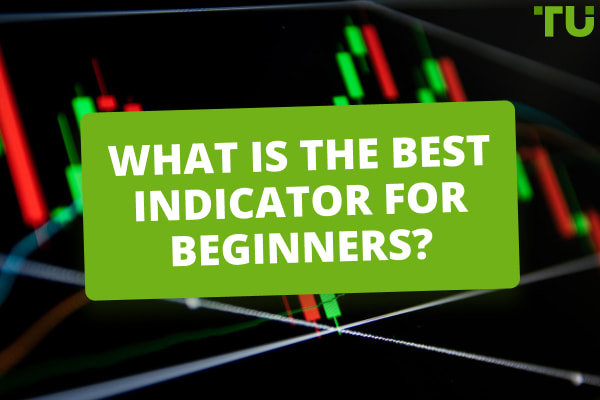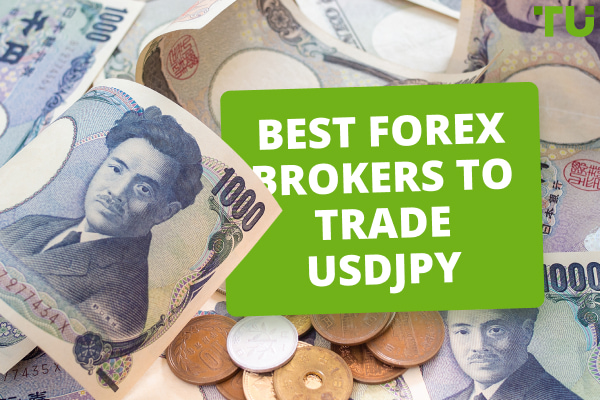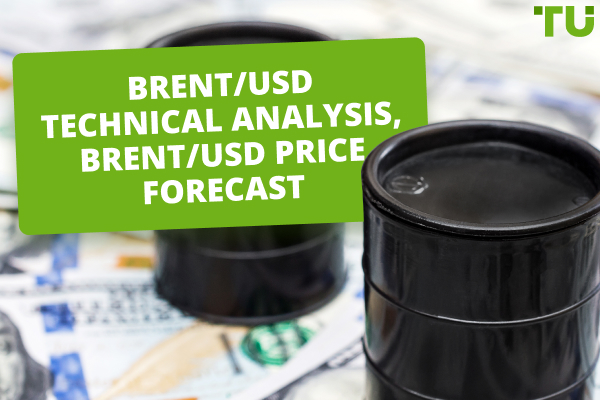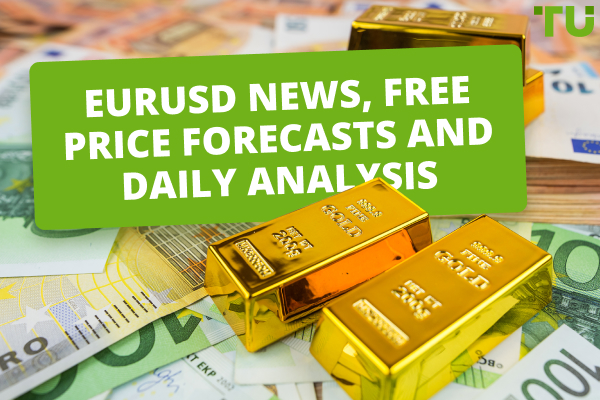Best Forex Brokers List for 2024 — the Reliable & Licensed
Editorial Note:
While we adhere to strict Editorial Integrity, this post may contain references to products from our partners. Here's an explanation for How We Make Money. None of the data and information on this webpage constitutes investment advice according to our Disclaimer.
Choosing the best Forex broker that will help you become successful in the Forex market is a challenging task.
To choose a reliable Forex broker, you need to spend hours and even days analyzing several companies and reading reviews about their work. But Surprise! We at Traders Union have done the work for you.
Our site is a service that simplifies the process of selecting a broker, thereby saving you time and frustration, and reducing the analysis of the Forex market to just a few minutes of studying our special ratings list.
Choosing a broker that accepts clients from your country is vital to ensure you can legally trade with them and that they comply with your regional regulations. The broker must be appropriately regulated to ensure your funds are protected, fair trading practices, and you have recourse in case of disputes.
6 Best Forex Brokers for 2024 (United States)

eToro is a multi-asset investment platform. The value of your investments may go up or down. Your capital is at risk. Don’t invest unless you’re prepared to lose all the money you invest.



Your location is United States
We’ve selected Top Brokers providing services in your country. If you would like to learn about the best brokers in a different region, please use the “Find my broker” service.
Warning:
There is a high level of risk involved when trading leveraged products such as Forex/CFDs. Between 65% and 82% of retail investor accounts lose money when trading CFDs. You should consider whether you understand how CFDs work and whether you can afford to take the high risk of losing your money.
Overview of the Best Forex Brokers
This table makes it easy to compare broker companies by placing their information side by side all in one place. The table includes the categories that are most important when deciding on a broker to work with.
Main features the best forex brokers in April 2024
| eToro | OANDA | IG Markets | Trading.com | FOREX.com | |
|---|---|---|---|---|---|
| Trading platform |
MobileTrading, WebTrader | WebTrader, MetaTrader4, Mobile platforms, MetaTrader5 | MetaTrader4, Web platform, ProRealTime, Trading apps | MT5 | FOREX.com, MT4, MT5 |
| Min deposit | $100 | No | $450 | $5 | $1000 |
| Leverage |
From 1:2 to 1:30 |
From 1:1 to 1:200 |
From 1:1 to 1:200 |
From 1:1 to 1:30 |
From 1:1 to 1:400 |
| Trust management | No | No | No | No | No |
| Accrual of % on the balance |
No |
No |
No |
No |
No |
| Spread | From 2 points | From 0 points | From 0.6 points | From 0.6 points | From 0.2 points |
| Level of margin call / stop out |
No | No | 100% / 50% | 100% / 50% | No |
| Execution of orders | Instant Execution | Market Execution | Market Execution | Market Execution | Market Execution, Instant Execution |
| No deposit bonus | No | No | No | No | No |
If you are not very finicky, then choose immediately from among our top-most winners.
The top brokers on the Traders Union list have a great rapport with their clients and abide by strict standards to fulfill their trading obligations. Click on the "Profile" button of any broker on our list and find detailed information about it. The information is objective because we check everything against 100 criteria. You can read dozens of reviews by traders of that broker.
Forex Brokers Ranking for 2024 (United States)
The rating of Forex brokers was created also based on the members of the Traders Union characteristics, as the Traders Union has access to them. No one else in the Forex market has such an opportunity to analyze data from hundreds of thousands of traders simultaneously. This is precisely why the Traders Union ratings of Forex brokers is the best and most objective ratings system of Forex brokers today.
Do you prefer watching videos? Then watch the video summary of this article.
Below you will find all the information.
How to choose a Forex broker?
Pay attention to the following company parameters to choose the best broker for your needs:
-
The broker's footprint in the Forex market.
The longer a brokerage company has been in the market, the more reviews there will be from its clients. Moreover, the older (i.e., more established) a company is the more it tends to value its reputation, which means it is more likely to fulfill its obligations.
-
Licenses.
Only reliable brokers are licensed and they are strictly regulated by independent governmental monitors to protect traders and their investments. Maintaining a license is expensive, so not all companies can afford it. Analysts at Trader's Union have prepared a list of the top 100 regulated forex brokers in the world. Review it to choose a reliable broker.
-
Country of registration of the broker; representative offices and physical offices.
Representative offices and broker offices are important components of selecting a reliable broker. A branching network of representative offices characterizes the company’s rate and commitment to the brokerage profession, although more and more brokers prefer online relationships with their clients.
-
Forex broker trading conditions.
Each brokerage company offers its clients a variety of competitive conditions for trading, such as: minimum spreads, a large number of trading instruments, additional services, and bonuses. The combination of benefits offered is an important factor in the selection process.
-
Customer support and service quality.
How quickly a broker’s customer support responds to a customer is important when assessing a broker's reliability. Top companies always respond quickly to every client's request and try to resolve the issue in the shortest possible time using the utmost courtesy.
-
Reviews of traders about the Forex broker.
Clients who already work with one or more Forex brokers can reveal a lot about the broker’s reliability and professionalism. We study — and verify — the reviews of each company before posting our ratings.
-
The company’s position in the Traders Union’s Forex ratings.
This criterion is important when making your selection because the position of the broker in the Traders Union’s Forex broker rating reflects the final audit based on 100+ objective characteristics as compared to its competitors.
How much money do I need to start trading Forex?
The good news for aspiring traders is that you don't need a fortune to break into the Forex world. Many brokers offer remarkably low minimum deposits, sometimes as low as $1. If you opt for a cent account, you can start with a modest $10 and enjoy extra high leverage.
But how much should you invest?
Be aware of low entry barriers. Trading involves risk, and proper risk management is crucial for long-term success. A common rule of thumb is to risk no more than 1-2% of your total account value per trade. So, if your account balance is $100, you should limit your risk on any single trade to around $1-2.
Day traders, whose fast-paced style requires some cushion to accommodate potential fluctuation, should start with at least a few hundred dollars. In contrast, swing traders, who sometimes hold positions for several days or weeks, may need a starting amount in the thousands.
Long-term investors buying and holding securities for the long haul should adjust their starting amount based on their selected stocks or ETFs.
The bottom line for any trading style is to put in only what you can afford to lose. Newer traders should start small, focus on learning proper trading techniques, and gradually increase their account size as they gain experience and confidence. It's also important to remember that high leverage is a tool that should be used with caution because, while it can magnify profits, it can do the same with losses.
What Forex broker should I choose for my needs?
For beginners
Before diving into Forex trading with real capital, hone your skills and test your strategies risk-free with a demo account. Alternatively, consider cent accounts with tiny trade sizes to minimize potential losses while learning. Copy trading, mirroring experienced traders' moves, can also be an excellent introductory step, but remember, it's not guaranteed success.
For day traders and scalpers
Day traders and scalpers should consider ECN/Raw spread accounts due to their tight spreads and direct market access, enabling faster executions and reduced slippage. Low fees and spreads are typically defined as those below one pip for major currency pairs like EUR/USD, and commission fees ranging from $2 to $5 per standard lot traded, ensuring cost-effective trading for high-frequency strategies.
For algorithmic traders
Algorithmic traders need brokers with platforms like MT4/MT5 that allow API integration and Expert Advisors (EAs). Choose brokers offering resources and support for algo trading, including educational materials, dedicated customer support, and backtesting tools. Opt for brokers with competitive commissions and tight spreads, and prioritize regulation, security, and responsive customer service.
For advanced investors
Advanced Forex traders should prioritize brokers that support automated trading strategies, complex order types, and sophisticated charting tools offering ECN/STP execution with direct market access, lower commissions, and access to leverage at favorable margin rates. It would also be essential to select brokers with comprehensive market analysis tools, educational resources, and dedicated support for advanced traders.
What are the typical Forex trading costs?
Forex traders need to be mindful of various expenses that can impact their bottom line. Here's a breakdown of the typical costs to consider:
Spreads: The difference between the buy (bid) and sell (ask) price of a currency pair. Tighter spreads mean lower costs. The typical spreads on a Forex ECN account range from 0.1 to 0.5 pips, while on a standard account they range from 0.5 to 2 pips.
Commissions: Some brokers charge fixed or variable fees per trade on top of the spread.
Per-lot fees: ECN (Electronic Communication Network) and STP (Straight Through Processing) accounts often have per-lot fees instead of spreads. These fees are typically lower than spreads but can add up with larger trade sizes. The typical ECN fee ranges from $2 to $5 per standard Forex lot.
Non-trading fees: These can include rollover fees or interest charged for holding leveraged positions overnight, inactivity fees for accounts with low trading activity to encourage participation, and conversion fees to cover the costs of depositing or withdrawing funds in a currency different from your account base currency.
Comparing these costs across different brokers is crucial to finding the most cost-effective option for your trading style and volume. By choosing a broker with competitive fees, you can maximize your potential profits in the long run.
What are the best Forex trading platforms?
The MT4 and MT5 (MetaTrader) platforms are the best options for beginners due to their user-friendly interfaces, demo accounts, educational resources, and abundant technical indicators and tools. They offer a gentle learning curve for exploring Forex trading fundamentals.
CTrader is widely considered a top choice for traders using automated trading strategies due to its C# programming support, which allows for complex algorithm and trading bot development. It also offers streamlined strategy creation and backtesting while seamlessly connecting with external software and data sources. Algorithmic traders with programming experience also appreciate the flexibility it provides.
For traders seeking advanced charting and access to investments, Interactive Brokers and Charles Schwab Forex offer institution-grade tools catering to experienced traders and investors. They offer robust charting tools, technical indicators, sophisticated research tools, drawing options for in-depth market analysis, and access to a broader range of asset classes. Also, active traders trading significant volume offer tighter spreads and better execution.
Is Forex trading risky?
Forex trading carries inherent risks, including:
Market Volatility: Currency prices can fluctuate rapidly due to economic news, political events, or market sentiment, leading to unexpected losses.
Leverage: While leverage amplifies potential profits, it magnifies losses equally. A slight market movement against your position can wipe out your capital.
Liquidity Risk: In less-traded currency pairs, buying or selling at desired prices can be difficult, leading to slippage (executing at a worse price than intended).
Counterparty Risk: There's a chance that your broker or financial institution may default on their obligations.
Geopolitical Events: Global economic or political instability can drastically disrupt currency markets.
It's crucial to thoroughly understand these risks and implement sound risk management strategies before trading Forex.
Is Forex trading legal?
Forex trading is legal in most countries across the globe. However, regulations can vary between jurisdictions because Forex is a decentralized global market where currencies are traded without a central exchange. Most countries have their own regulatory bodies that oversee Forex brokers to ensure fair practices and protect traders.
Researching your country's specific Forex regulation structure and choosing a well-regulated broker is crucial to ensure you're trading within a safe and legal framework. TU assists traders looking for a broker by including the legal aspects of broker oversight in its broker rankings, displaying only those companies in your regional ranking that operate legally in and accept clients from your country.
How can I check if a Forex broker is regulated?
Before selecting a Forex broker, it's critical to conduct due diligence to determine the level of oversight and how well it's regulated. Here are five steps to take to verify a broker's legitimacy:
Identify the regulatory body: Determine the relevant regulatory body in your country responsible for overseeing financial institutions and brokers. This information is often readily available on government websites or financial authority websites. Common examples include the Financial Conduct Authority (FCA) in the UK, the Securities and Exchange Commission (SEC) in the US, and the Australian Securities and Investments Commission (ASIC) in Australia.
Utilize the broker search tool: Most regulatory bodies maintain a searchable online database listing authorized brokers within their jurisdiction. Locate the search tool on the relevant website and enter the broker's name. If they are not listed, proceed with caution.
Verify license details: Once you find the broker in the database, carefully examine their license details, such as their license number, registration date, and the type of activities they are authorized for (e.g., Forex trading, stock trading).
Check for public warnings: Regulatory bodies often issue public warnings against fraudulent or unauthorized financial institutions. Search the regulator's website and other reliable sources for any warnings about the broker you're considering.
Research online reviews: While online reviews should not be solely relied upon, they can offer additional insights and potential red flags. Look for reviews on reputable financial websites and forums, keeping in mind that negative experiences might be amplified online.
Don't hesitate to contact the regulatory body directly if you have any questions or concerns about a broker not addressed through the provided information.
By following these steps, you can take significant strides towards ensuring your chosen broker operates legally and under the necessary regulatory framework, protecting your financial interests and minimizing potential risks.
How to avoid Forex scams?
Here are four essential tips to avoid Forex scams:
Be wary of unsolicited offers: Legitimate brokers won't pressure you into opening an account. If someone contacts you out of the blue promising quick and easy profits, it's likely a scam.
Verify regulation: Every legitimate Forex broker will be licensed and regulated by a reputable financial authority in your country. Check the broker's website for their license information and verify it with the official registry of the regulatory body.
Research the broker extensively: Look for independent reviews and testimonials from other traders. Check the broker's history, financial stability, and any news articles mentioning them. Be wary of brokers with limited online presence or negative reviews.
Beware of unrealistic promises: Guaranteeing high returns or risk-free trading is a major red flag. Forex trading carries inherent risks, and any broker claiming to eliminate them is likely trying to deceive you.
By following these tips and approaching Forex trading cautiously, you can significantly reduce your risk of falling victim to a scam. Remember, if something seems too good to be true, it probably is.
Opinion of TU Expert
Contributor
Take an open approach to finding and opening a Forex brokerage account because you may not get it right the first time. Be flexible, and if you start with one broker and they are not meeting your expectations, move on to another broker. Larger brokers should offer more confidence in their operations than smaller brokers and further due diligence suggestions are referenced in this article. As with most services, recommendations and referrals will likely provide truly useful information.
There are estimated to be over 7,000 Forex brokers globally, but there are few operating in the USA. Customer comments, feedback, and reviews found online are a good place to start. Personal recommendations, if you are connected to other traders, can provide real insight not necessarily found online. In addition, look to connect with local trading groups (Meetup groups, for example) or online trading groups where other traders share information.
Methodology for compiling our ratings of Forex brokers
We evaluate and assess each broker using over 100 objective criteria, resulting in an average score for each Forex broker, which characterizes all aspects of its work. We also take into account its trading volume, which we have access to thanks to hundreds of thousands of traders of our Union. We also take into account reviews on brokers by their traders, which we curate on our website. As a result, according to our unique algorithmic matrix, which is applied to all companies, our program impartially calculates the overall average for each company and its position in the rating. This makes our rating system the most objective and independent in the Forex market.
Table of categories of criteria for evaluating Forex brokers
| Criteria category name | Criteria number in category |
|---|---|
| Financial | 38 |
| Reliability | 27 |
| Security | 18 |
| Trading conditions | 15 |
| Customer support | 9 |
Find out more about the unique broker assessment methodology developed by Traders Union specialists.
-
How to choose a Forex broker in the rating?
The highest position in the rating table characterizes the broker with the highest reliability and popularity among traders. This is the main goal of the assessments.
-
Where can I read reviews about Forex brokers from the rating?
The latest reviews about the work of traders can be found on the Profile page.
-
Does leverage increase profits in Forex trading?
Leverage allows you to open larger positions with a small capital so can amplify gains. But it also amplifies losses if the trade goes against you. Use leverage wisely based on your risk appetite.
-
Which Forex brokers offer Islamic accounts?
Some brokers like XM and IC Markets offer Islamic accounts that don't charge swap fees.























